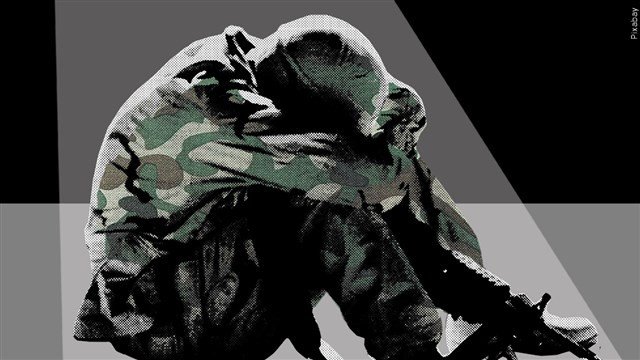OSU study: Veterans’ PTSD symptoms affected by factors like service appraisal, social support

CORVALLIS, Ore. (KTVZ) — Military veterans’ individual perceptions of their combat experiences and the social supports they receive when they return home are greater predictors of post-traumatic stress disorder symptoms than the specific conflict in which they served, a new Oregon State University study found.
The study, published in the journal The Gerontologist, surveyed combat veterans from the Vietnam War, the Persian Gulf War and post-9/11 wars with questions about PTSD symptoms and how they felt about their military and post-military experiences.
OSU researchers were surprised by how similar veterans’ experiences were across the three conflict eras.
“Regardless of the conditions of war — and they’ve really changed dramatically in the last 50 years — it’s the individual’s experience, and what happens after the war, that’s the biggest predictor of PTSD,” said study co-author Carolyn Aldwin, professor emerita in OSU’s College of Health, director of OSU’s gerontology program and former director of the Center for Healthy Aging Research.
Negative experiences in combat and negative self-appraisals of service experiences were linked with higher rates of PTSD symptoms later in life. Negative experiences upon coming home also affected veterans’ self-appraisals of their military service, which in turn were related to self-reporting of PTSD symptoms in the past month.
The researchers hope their findings can help inform more effective prevention and screening tools for health care providers like Veterans Affairs.
Providers are trained to look for established risk factors to determine whether veterans might be suffering from PTSD, including gender differences, education and income level, said lead author Maria Kurth, who graduated from OSU’s College of Health last year and is now a post-doctoral scholar at Penn State.
“But those things are surface-level,” Kurth said. “Instead of saying, ‘Here comes a male veteran; he’s more at risk than a female veteran,’ this paper shows that we have to look beyond that and understand what their services experiences were. That tells us who may be more at risk for mental health problems or PTSD.”
The study included responses from 167 combat veterans. The survey asked participants to rank the severity of combat they experienced; how they perceived their military experience, choosing from a list of desirable experiences like “learned to cope with adversity” and undesirable ones like “bad memories/nightmares;” and about how they felt their community responded to them upon coming home.
It also screened for PTSD with the standard 20-item checklist, which asks about symptoms like flashbacks, nightmares, hypervigilance and strong feelings of guilt, fear and anger.
Results showed that 22% of study participants were currently experiencing PTSD symptoms, regardless of how long ago they served in combat.
Veterans of color reported more PTSD symptoms than their white peers across the study group as a whole. Other studies have found that veterans of color also seek mental health services at lower rates, disclosing discrimination as one reason, which the study authors note is also associated with PTSD.
The researchers said they went into the study expecting to see major differences based on when veterans served, because of changes in combat severity and the political and social environments surrounding those wars.
“What this research shows is that it’s these individual experiences instead, and you don’t really know how veterans have experienced their service unless you’re asking them these questions,” Kurth said.
Moving forward, the researchers hope that questions around combat severity, service appraisal and PTSD symptoms can be included in large-scale studies of veterans to better understand who is at risk for short- or long-term physical and mental health problems.
“A lot of studies are showing that how you cope with the initial PTSD symptoms really predicts the long-term PTSD,” Aldwin said. “This is a long-lasting, serious condition that needs to be treated and can be treated successfully, but we need to get folks into treatment plans as much as possible.”
Soyoung Choun and Suzanne Segerstrom at OSU and Dakota Witzel at Penn State were also co-authors on the study.